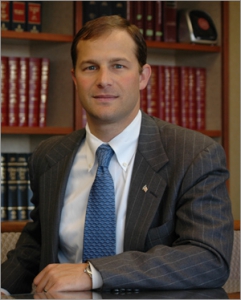The best criminal defense is built upon a full and complete understanding of the case and the defendant. The criminal defense attorney gathers information in several different ways:
- Open communication with the client to obtain a thorough personal and criminal history and to verify the client’s mental capacity and state of mind, a timeline of the crime, and find out if there is a relationship with the victim. Thanks to attorney-client privilege, anything shared with one’s defense attorney is completely confidential.
- The “discovery” process that promotes fairness in trials, whereby the defense receives all the evidence that the prosecution has, including the charging document, police reports, lab tests, and witness statements. Criminal defense attorneys analyze these documents with great care to assess the state’s evidence and look for holes that may help the defense or point to wrongdoing on the part of law enforcement while gathering evidence (e.g., illegal search and seizure, etc.).
- Independent investigation to gather new evidence and verify the facts of the case. Good defense attorneys will not simply take the prosecutor’s version of events at face value, but instead will conduct their own research, including but not limited to: interviewing witnesses to determine their credibility; visiting the scene of the crime; and exploring any inconsistencies in the state’s evidence.
Next, the best criminal defense attorney will analyze the collected facts of the case and create a “theory of defense” that puts together the client’s version of the story and answers any questions or doubts the prosecution will likely raise at trial. The best criminal defense lawyers utilize a team approach when developing a theory of defense; brainstorming and thinking outside the box alongside other expert attorneys leads to the most effective and innovative defense strategies.
A successful defense attorney will bring in outside consultants to lend their expertise to a case as needed. Examples include:
- Expert Witnesses: In many cases in Ohio and elsewhere, attorneys will engage expert witnesses to help investigate a case and testify on their client’s behalf at trial. A seasoned trial attorney will locate and engage experts at the top of their respective fields, such as forensic scientists, psychologists, medical doctors, and lab technicians.
- Trial Consultants: Oftentimes a defense team will also engage one or more trial consultants who may have a background in a field such as clinical psychology, the social sciences, law, communications, or law enforcement. The role of such consultants varies by case but can include assisting with developing a defense strategy, creating presentations for use at trial, and advising on sentencing recommendations.
- Jury Consultants: A jury consultant specializes in helping attorneys select the optimal jury for hearing their case. While attorneys are not allowed to exclude potential jurors based on factors such as age, gender, or race, both the prosecution and the defense aim to weed out those with potential biases and keep those who may be sympathetic to their arguments. A jury consultant can help the defense team determine what type of juror could help or hinder their case at trial.
The Bottom Line: If you need to hire a criminal defense attorney, you will know to seek out the very best counsel: someone who keeps you informed every step of the way, conducts independent investigations, and works collaboratively both inside and outside of his team to formulate the very best defense. Aligning yourself with a well prepared and passionate attorney could very well mean the difference between acquittal and conviction. Call Scott Rubenstein: 513.260.2099


Leave A Comment